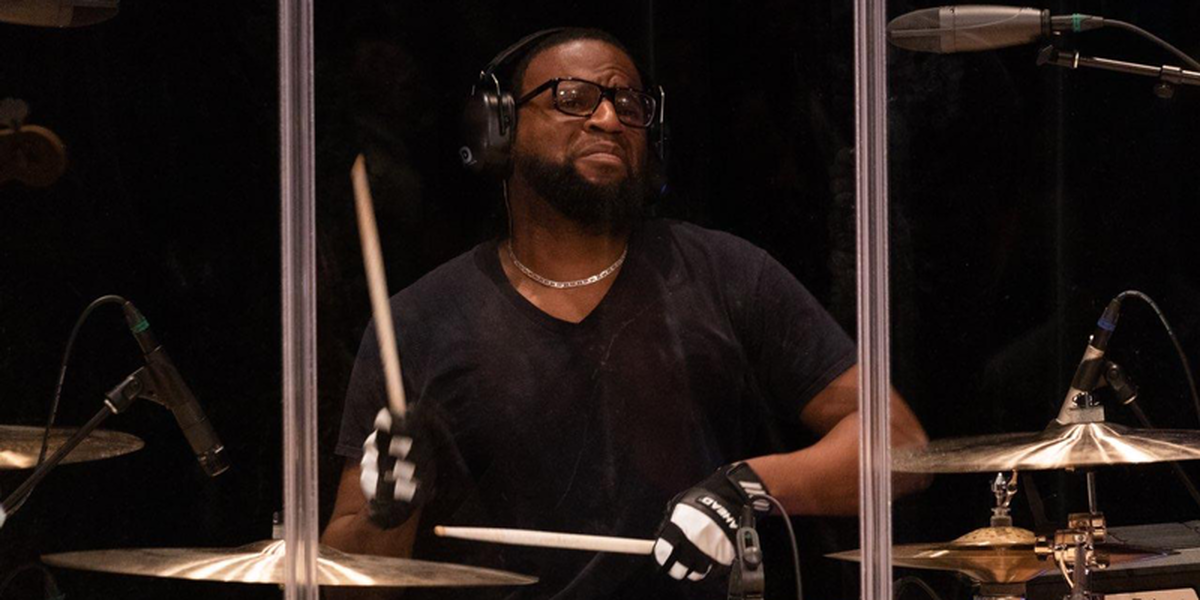
As a first-year student at Penn State University, Jason Bundy worked to design his own major as a dating coach. At the time, Bundy had his sights set on law school and a political career, but yearned for a track outside of pre-law. Fascinated by social dynamics and human behavior, this creative major was a great fit.
A decade later, Bundy isn’t a dating coach, a lawyer, or a politician. He’s a Ph.D. trained evolutionary biologist and educator, now working as a postdoctoral researcher in the Department of Ecology, Evolution and Behavior (EEB). As part of the National Institute of Health’s Institutional Research and Academic Career Development Awards (IRACADA) Program, Bundy conducts research in Michael Travisano's lab and teaches courses at the Michigan State University, where he completed his doctoral degree. This spring he will begin teaching at Normandale Community College.
His hobbies outside of academia are far-reaching. He’s a drummer, producer, and a live streamer, sharing his lectures on YouTube and connecting with people across the globe about topics ranging from evolution to music.
Undergraduate ongoings
With strong interests in social dynamics and law as an undergraduate student, Bundy worked as a community organizer on a handful of Senator Corey Booker’s early campaigns in Newark, New Jersey. Motivated by these experiences, Bundy made a bid for student body president in his third year at Penn State. He ultimately disqualified and decided to take a leave of absence soon after for mental health reasons.
When Bundy returned to Penn State, he took a detour into social dynamics research, fueled by his interests in human behavior. Prior to working in a research lab, a trusted mentor suggested that he study evolutionary biology and Bundy was floored.
“Given that I had known him for so long, and we were really close friends, I was actually offended,” says Bundy. “My response was, ‘Have I ever said the word biology to you?”
Nevertheless, Bundy heeded the advice of his mentor and enrolled in Sex and Evolution as a returning junior. He quickly realized that his past interests in human behavior aligned closely with biological anthropology and evolution. He was thinking like a scientist, but hadn’t assigned the language to match his thought process and interests.
Research captivated Bundy. Arguing through evidence appealed to him as someone first drawn to law, but the way that science centered arguments on the unknowns sold him. “[Funders] don't give us grants to figure out what's already been agreed upon. They fund things we argue about,” he says. “I really was excited about the fact that scientists are constantly arguing through experimentation and evidence.”
Finding his foothold
Energized by the research process, as an undergraduate Bundy completed summer research through TRIO, a nationally supported program aimed to support students from diverse backgrounds. He then went on to complete a master’s thesis at Penn State and a Ph.D. at Michigan State University.
For his research in the Travisano lab, Bundy uses digital organisms to test out evolutionary hypotheses. By using high-powered computers and software, he runs experiments in a matter of hours or days that would take decades or longer if he used bacteria in a lab setting. Bundy and colleagues craft digital organisms with specific traits that they’re keen to learn more about. For Bundy, he’s interested in studying specific mating tactics through these algorithms.
Some research focuses on coercive mating—a type of mating where males forcibly transfer their sperm to the female reproductive tract—which is important to understand gene transfer and evolution more broadly. “This type of mating is extremely violent,” he says. Given its violent nature, using algorthims instead of organisms to study coercive mating’s impact on mate selection and a population’s evolution is appealing.
“I don't want to publish 50 papers about any one thing. I want to use this [digital evolution] system to touch on the big questions,” he says. He’s interested in topics across the range. From sexual selection to evolutionary theory, origins of life to cultural evolution.
Leveraging computational power to tackle research questions certainly has its advantages. It also has benefits in the classroom. Bundy leverages the system in the evolutionary biology seminar he teaches at Michigan State University, called “Darwin’s Law.” In this r course, students use digital evolution software to investigate the foundations of evolutionary theory and conduct original research projects. Bundy is thrilled to use his multimedia experience to help his give students hone their communication skills.
With the support of the IRACADA Program, Bundy has his sights set at teaching and doing research at a research-intensive institution. “[In science], you make a career out of your intellectual pursuits, rather than just trying to find a job,” says Bundy.